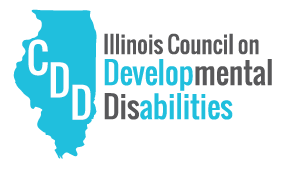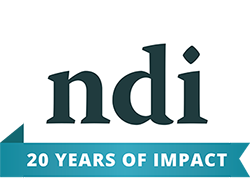Having a place of one’s own, whether living alone, with a roommate or in a group setting, can be a reality for people with disabilities through supportive housing opportunities.
Youth and adults with disabilities have the ability to access services necessary to secure housing, including opportunities for living independently within the diverse communities of Illinois. This can include: rental assistance or subsidized housing; supportive housing and services; work support savings opportunities; home purchase initiatives; and housing rehab programs.
Supportive housing is defined as affordable rental housing for people with very low- to moderate-income (LMI) who may have a disability or experience multiple barriers to community living. For these populations, it means that no more than 30 percent of income, or below Area Median Income (AMI), is spent on rent or other housing-related expenses like water, gas, electricity, etc. Besides affordability, supportive housing also provides services and supports that enable people with intellectual and developmental disabilities (I/DD) to live in the type of housing they want to live in and within their communities. Support services may include case management services that address a person’s behavioral, social and emotional well-being in addition to transportation needs. Supportive housing, however, is not intended for every population that needs access to affordable housing. The threshold for need for supportive housing is higher than the simple need for affordable housing.
According to the Low Income Housing Coalition (LIHC), Illinois ranked #20 in the U.S. in terms of housing expense; a person would need to make $22.11 per hour to afford housing, a typical two-bedroom residence, without subsidies or support from outside sources. This is not achievable for many people across Illinois and can make housing out of reach as the minimum wage in the state is $11.00 per hour.
There are several avenues people with disabilities can take to find housing assistance. They are:
- Statewide Referral Network
- Rental Housing Support Program (RHSP)
- Section 811 Rental Subsidy
- Regular LIHTC Units
- Small Single-Site Supportive Housing
The Statewide Referral Network includes the Illinois Housing Development Authority units that offer Low Income Housing Tax Credits (LIHTC) to developers who set aside 10-20 percent units as supportive housing. People with disabilities can work with a social service provider and be placed on waiting list to gain access to a unit in the community that they want to reside. Eligible referrals are people with disabilities, people experiencing homelessness, or at risk of homelessness, and those who are making no more than 30 percent of AMI. Visit the Illinois Housing Search website to be put on a waiting list or to locate housing.
Rental Housing Support Program provides rental assistance to extremely low-income households living in participating properties. People with disabilities should contact the rental assistance agencies directly to apply or the Illinois Association of Community Action Agencies (IACCA).
Section 811 Rental Subsidy is provided for extremely low-income households, where at least one individual in the household has a disability, and is at least 18 years old and less than 62 years old at the time of lease signing. The person with a disability must be eligible for community-based, long-term services as provided through Medicaid waivers, Medicaid state plan options, state-funded services or other appropriate services related to the target population.
Regular LIHTC Units are for persons with higher income than AMI, usually 50-60 percent, and can work well as supportive housing for two or more residents with a disability. These type of units can also be used to support a Community Integrated Living Arrangement (CILA); a living arrangement for adults (age 18 and older) in a group home, family home or apartment where eight or fewer unrelated adults with developmental disabilities live under supervision of the community developmental services agency.
Small Single-Site Supportive Housing falls under the Illinois Housing Development Authority. Housing developers receive funding to acquire, rehabilitate or build small, single-site affordable housing. These units are not population specific and are disability neutral – anyone can live in them.
There are many options for people with disabilities who want to live independently. The key to finding housing, according to Lore Baker, President and CEO, Association for Individual Development (AID), is to get on waiting lists as soon as possible, as the number of supportive housing units is limited. This will ensure that people with intellectual and developmental disabilities have options as to how and where they want to live in their communities.
For more information about housing opportunities for people with disabilities, watch our webinar archive. You can also read our list of answers to housing questions asked during that webinar.
In partnership with the Illinois Council on Developmental Disabilities. This communication is supported in part by grant number CFDA 93.630 from the U.S. Administration for Community Living, Department of Health and Human Services, Washington, D.C. 20201. Grantees undertaking projects with government sponsorship are encouraged to express freely their findings and conclusions. Points of view or opinions do not, therefore, represent official ACL policy.




